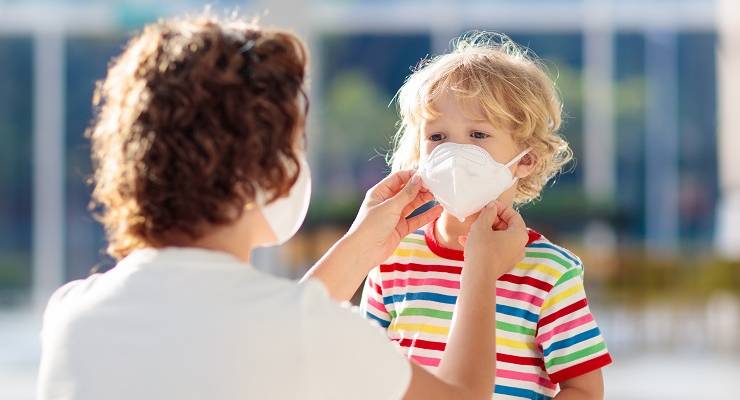
A rising number of children are developing rare syndromes that could be linked to coronavirus, the UK national health service and paediatrics specialists have warned.
The UK has seen a small rise in the number of cases of critically ill children presenting “overlapping features of toxic shock syndrome and atypical Kawasaki disease with blood parameters” — with some of those children testing positive for COVID-19.
It comes after findings that children are as likely as the rest of the population to become infected with COVID-19, although less likely to develop severe symptoms.
Kawasaki disease is a severe illness which mostly affects kids under five. There are around 200 to 300 cases diagnosed per year in Australia. Symptoms include fever, rash, bloodshot eyes, red lumps on the tongue and joint pain.
Toxic shock syndrome, a very rare complication of infection from bacteria, has symptoms including a red rash, dizziness and tiredness, aching muscles and vomiting.
Neither illness has symptoms which crossover with COVID-19, Professor Paul Komesaroff, a physician and director at Centre for Ethics at Monash University, told Crikey. This means previous cases of COVID-19 in children with mild or no symptoms may have been missed.
“In Australia, COVID-19 testing criteria was only extended a month ago … it’s possible children with Kawasaki disease may not have been tested for coronavirus,” he said.
COVID-19 causes a range of secondary illnesses and infections, including pneumonia and immune-based inflammatory response in the lungs, meaning comorbidity in children is possible.
But, Komesaroff added, “an effect of the virus on children would be a disturbing new development … this would be a great concern as children have largely — though not completely — escaped the effects of coronavirus”.
Importantly, the report from the UK focuses on a very small number of children and does not go into great detail.
“There could be a potential link between the illnesses, or it could be a complete coincidence,” said Komesaroff. “It’s too early to draw any conclusions from preliminary reports at this stage.”
Whether these reports will have an effect on school closures remains to be seen, though Komesaroff thinks it’s unlikely.
“The argument is that teachers are more at risk in the staffroom than the classroom, as COVID-19 appears to be transmitted more readily among adults. There’s no suggestion from this report the inflammatory syndromes affect the possibility of increased transmission.”








Crikey is committed to hosting lively discussions. Help us keep the conversation useful, interesting and welcoming. We aim to publish comments quickly in the interest of promoting robust conversation, but we’re a small team and we deploy filters to protect against legal risk. Occasionally your comment may be held up while we review, but we’re working as fast as we can to keep the conversation rolling.
The Crikey comment section is members-only content. Please subscribe to leave a comment.
The Crikey comment section is members-only content. Please login to leave a comment.